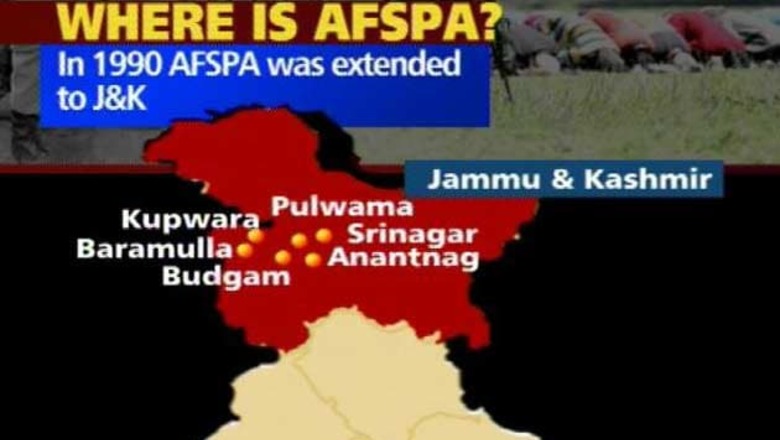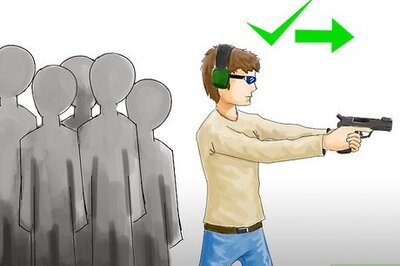
views
New Delhi: The consensus over the proposal to withdraw the Armed Forces Special Powers Act (AFSPA) from some Jammu and Kashmir is still eluding the Centre.
"Important decisions have to be taken after carefully assessing all aspects. Yesterday's CCS had a very long meeting. Ultimately we thought before we take a final decision, we will take into confidence all the major parties so that everybody is involved," said Defence Minister AK Antony.
The Act that gives the Army the powers to shoot and search without a warrant has already split the Cabinet.
With the Defence Ministry and the Bharatiya Janata Party (BJP) speaking for the armed forces, saying that any move to dilute the Act could hamper morale and operational capability, the consensus has now been left to an all-party meet in New Delhi in Wednesday.
"I am sure the government is sensitised to this problem and whatever decision they will take I am sure it will be the correct one," said Air Chief Marshal PV Naik.
From Kashmir to the North East the demand that the Act be withdrawn has been rising.
The 1958 Act is in force in parts of Arunachal Pradesh, Assam, Manipur, Meghalaya, Mizoram, Nagaland and Tripura. The act was extended to Jammy and Kashmir in 1990 and is currently in 12 districts including Srinagar, Budgam and Gandherbal from where it could be lifted if there is consensus.
Many in South Block warn that a partial withdrawal could tie the hands of the forces dealing with infiltration in J-K and trigger similar demands from the North East.
A possible way out could be to amend the Disturbed Areas Act that provides legal cover to paramilitary and state police personnel engaged in anti-insurgency operations.
Even as the future of the Act is being debated, the Army's reservations have been in the public domain.

















Comments
0 comment